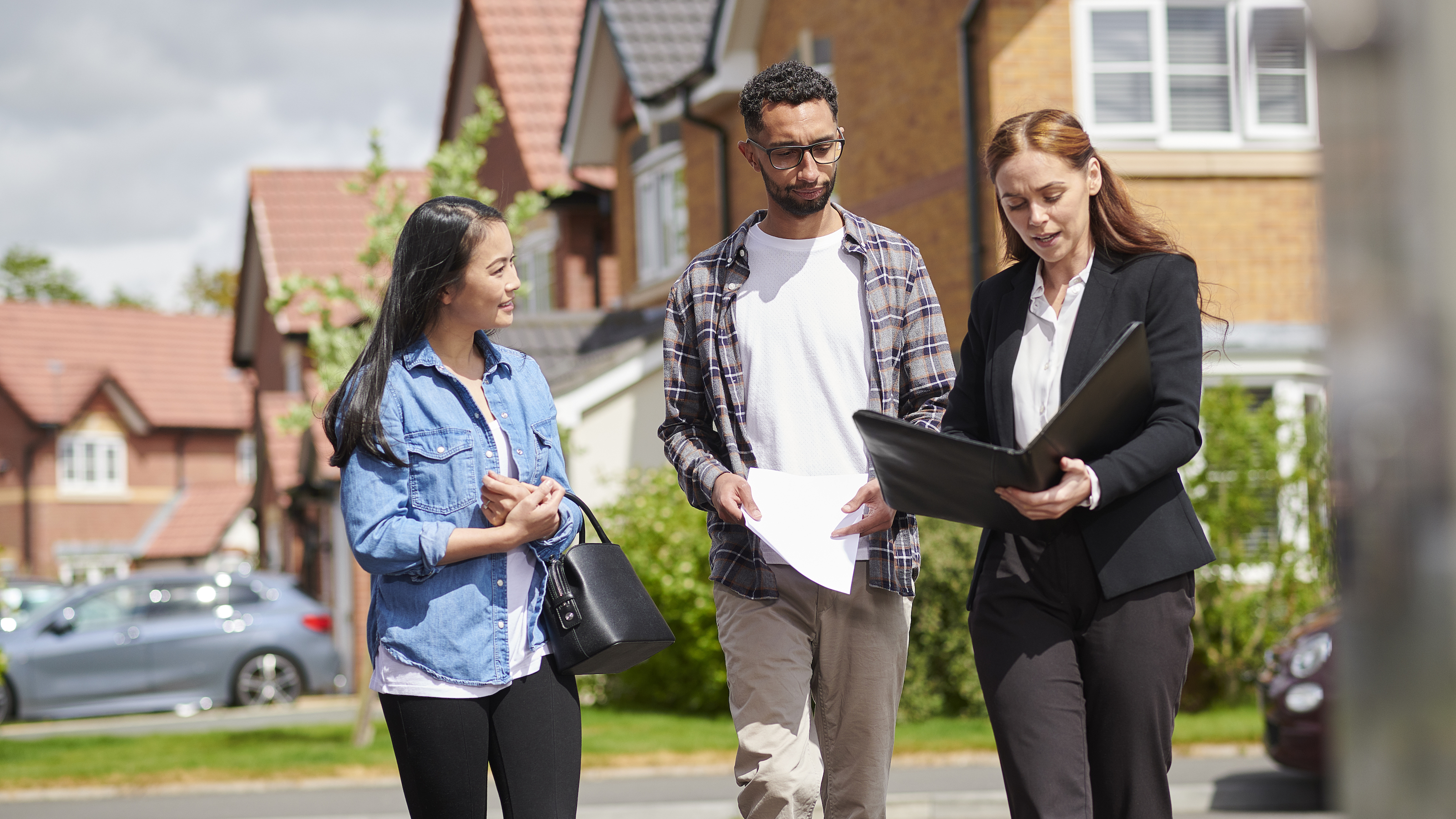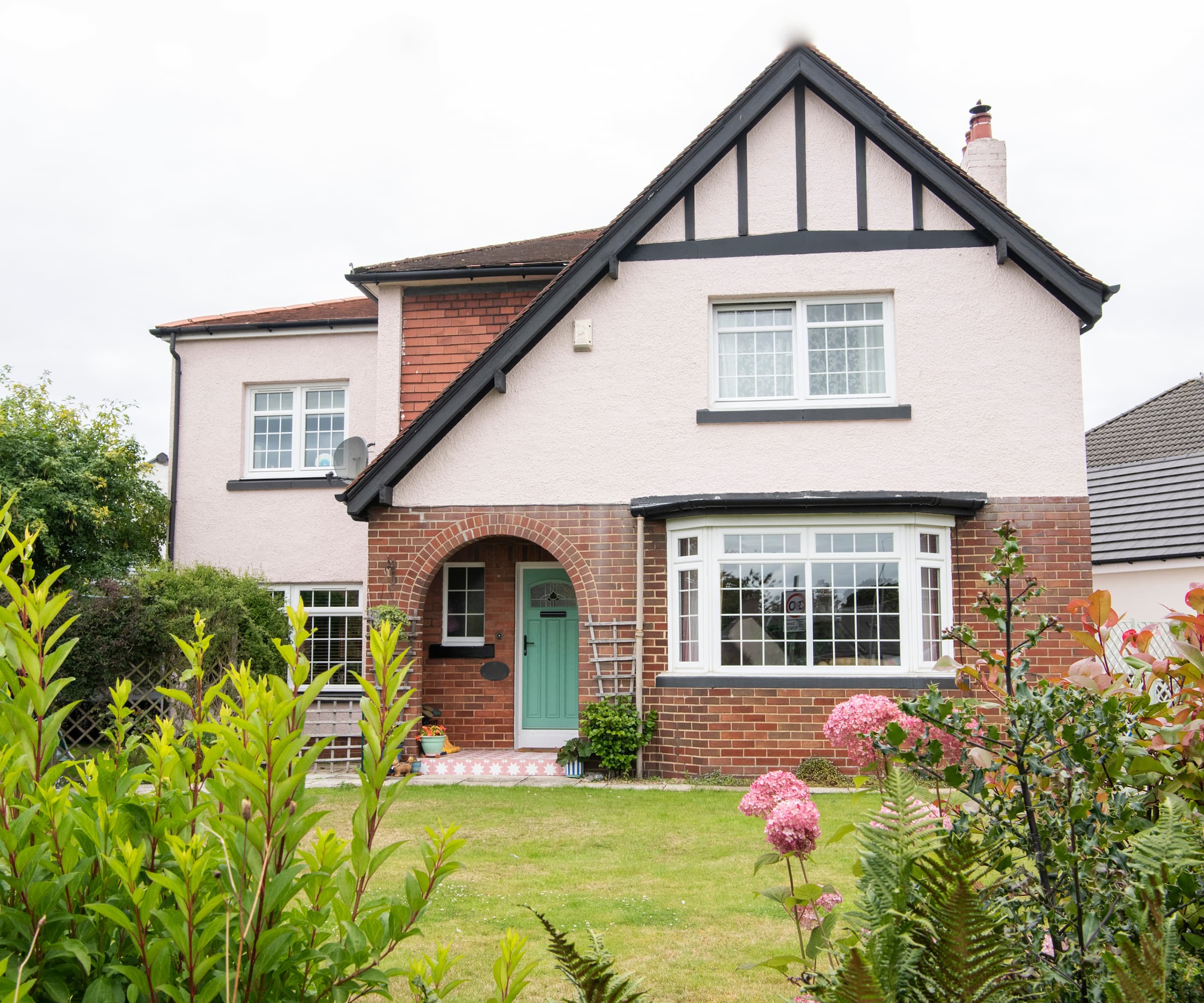13 questions to ask when viewing a house — and why they’re important
Posing the right questions when you look at homes can help you choose well. Discover what you should ask and when

- 1. Why is the property being sold?
- 2. How long have the owners lived there?
- 3. How long has it been for sale?
- 4. How old is the home?
- 5. What renovations or extensions have there been?
- 6. Are there any restrictions on the property?
- 7. Is the property leasehold or freehold?
- 8. Are there ongoing costs?
- 9. Is there any local development planned?
- 10. What’s included in the sale?
- 11. How old are plumbing and electrical systems and the boiler?
- 12. Have there been any issues with the neighbours?
- 13. What’s the minimum the seller will accept?
Homebuying is typically a lengthy process and it’s one that comes with costs above the price you agree to pay. But what can make a difference to the speed of your purchase and even what you spend on professionals is knowing the essential questions to ask when you’re viewing a property.
The viewings you arrange when you’re buying a house are not only your chance to inspect the properties you’re interested in. They also offer the opportunity to ask the estate agent showing you round questions about it which could prevent you from setting the housebuying process in motion on a property that ultimately proves unsuitable for some reason with all the attendant expenses.
Our guide has the details you need on what to ask and when to ask it to help make the housebuying process a smoother one.
Why you should prepare a list of questions

Ask the right questions when you’re viewing a house and you’ll be better able to decide whether to make an offer. Preparing a list is a good strategy so you don’t miss anything out.
Typically an estate agent will conduct a viewing and they have an obligation to answer questions truthfully. There may be an opportunity to ask the homeowners questions, too, although they won’t necessarily be present at any viewings you make of a property.
While some questions (see below for a list) will apply to many properties, it’s worth tailoring what you ask depending on the type of property you’re looking for: a turnkey home, a renovation project, or even a self-build opportunity.
What to ask about a turnkey property

Subscribe to Plotfinder.net to access over 15,000 building plots and properties that could become your next project
"It’s essential to focus on details that ensure the home truly lives up to its 'move-in ready' promise," says Jerome Lartaud, founder of Domus Holmes Property Finder.
"Start by clarifying exactly what’s included in the sale – are the kitchen appliances, light fixtures, or custom blinds staying, or will they vanish when the sellers move out? You’ll also want to ask about who completed the renovations and whether warranties are in place, as this can provide reassurance about the quality of the work and protect you from unexpected repairs."
Think about energy usage, too. "It’s worth asking about the home’s energy efficiency," Jerome adds. "Modern turnkey properties should offer lower utility costs thanks to efficient insulation, windows, and systems."

Jerome Lartaud is a seasoned property investor and developer with over 20 years’ experience investing in and renovating residential and commercial properties in France and the UK. He leads Domus Holmes Property Finder and assists clients with any aspect of property search and acquisition.
What to ask about a property for renovation
Intend to renovate a property? "It’s especially important to ask questions relating to the property’s current state and potential challenges for renovating, providing clarity on what can be achieved and the likely cost," says Luke Saywell, partner at family-run estate agents Gascoines.
"Check whether the property has been subject to planning applications, as this could provide insight into what changes are likely to be approved. If such permissions have not been implemented, then why not? This could reveal challenges such as budget constraints, planning issues, or unforeseen structural complications.
"If the property includes extensions, then what is the specific age of these?" he adds. "Older extensions might not meet modern building standards and could require upgrading."

Luke Saywell is a partner at family-run estate agents Gascoines and has vast experience at managing sales and lettings transactions in rural Nottinghamshire.
What to ask about a self-build property
Planning a self-build project? If you’re finding a plot for a self build and have come to view be sure to ask if any planning permission is full or outline permission and when this was granted.
Ask, too, about rights of access, easements and wayleaves, restrictive covenants and planning obligations affecting the plot.
When to ask questions
The second viewing is the time to ask questions, according to Dominick Brown, director of buying agency Prime Purchase. "For me, seeing a house for the first time should be an opportunity to take the property in and to pick up any positive feelings for it. This is more about gut instinct and getting a sense of whether you want to investigate the property further."
Prepare questions before a second viewing, however. "It is important to have your questions lined up and prepared before the appointment," says Dominick. "Emotion can take over on the day so having a list to refer back to ensures that everything is covered off and you don’t forget any crucial questions."
And you might want to follow Dominick’s advice by asking in advance. "I would recommend raising such questions with the agent before the appointment, and in writing," he says.

Dominick Brown has worked in residential agency since 1998, starting out in Bristol and then Bath before spending 14 years working in, and running, the Savills office in Sevenoaks. He has brokered countless deals in Kent and East Sussex, earning a well-deserved reputation as a knowledgeable property adviser worth having in your corner.
Questions to ask when viewing
1. Why is the property being sold?
Asking about the reason for selling can inform negotiations if you were to put in an offer. A seller who has to move quickly could be open to taking a lower price. It’s also useful to find out if the seller is buying another property, so you know if you are going to be in a chain if you make an offer.
2. How long have the owners lived there?
If the seller hasn’t been in situ for long, it could indicate issues with the house, or the neighbourhood or even the neighbours themselves. Of course, the answer could provide some reassurance that their reason for moving so quickly seems to be nothing to do with these things.
3. How long has it been for sale?
This question can also provide you with useful information were you to put in an offer. If the house has been for sale for a while then you might secure it for a lower price. A good follow-up to this is to ask the agent their opinion on why it’s hanging about on the market, and if there have been offers and why these didn’t proceed to a sale.
4. How old is the home?
While an older home can be charming, it could cost you more in the long term – for example because it’s less energy efficient than a modern home. You should have a survey if you are buying in any case, but it’s preferable to think about whether a property’s age could bring expense you hadn’t factored into your budget before making an offer.
5. What renovations or extensions have there been?
If the answer to this question is that there have been renovations or extensions, ask about permissions and consents obtained with regard to planning and building regulations. Although your legal professional will check these during the conveyancing, be aware that if there is anything missing, this could lead to additional house buying costs if you did go forward.

6. Are there any restrictions on the property?
A location in a conservation area, that it’s listed, or any covenants can all affect what you’re allowed to do with a home, so find out now as it might change your mind about buying. Ask, too, about previous work under permitted development as previous use of the allowance could limit your options to extend.
7. Is the property leasehold or freehold?
For a home that’s leasehold, you’ll need to find out how many years are left on the lease and about ground rent and service charges. Be aware, too, that the terms of the lease can affect the renovations you are able to do, so ask if there are restrictions. And if you have a companion animal, find out if keeping pets is allowed. Note that the additional work a conveyancer has to do when you’re buying a leasehold property can mean higher fees.
8. Are there ongoing costs?
While leasehold properties have associated charges, bear in mind that there can be estate charges associated with the shared areas of housing estates. You’ll be paying these as part of the cost of house ownership if you buy a property that is subject to them.
9. Is there any local development planned?
Although you’ll find the answer to whether there are any developments planned nearby from your legal professional during the conveyancing process, ask now as it might affect whether you want to live there. Bear in mind that it’s not just an issue of the impact of finished development; there’s also the noise and disruption while it’s being built.
10. What’s included in the sale?
Again, this is information that will be provided to you during the conveyancing process, but it’s best to find out ahead of that since it could make a difference to what you might offer or even whether you want to make an offer at all.
11. How old are plumbing and electrical systems and the boiler?
Asking about these elements of the house could alert you to the possible expenditure and disruption of updating as well as the comfort level of the house when it comes to the heating. The answers could inform any offer you make or whether to make one at all.
12. Have there been any issues with the neighbours?
Formal complaints against the neighbours have to be disclosed by the seller as part of the conveyancing process, but it’s worth asking now – especially if you can do so of the seller in person.
13. What’s the minimum the seller will accept?
It’s worth asking this one, and the estate agent might be willing to give you a guide that can help you pitch your offer if you decide to make one. Don’t neglect your own research, however, when deciding what to offer.
If you do get a chance to speak to the seller of a property as well as an estate agent, be ready to ask them more about the home and the area, says Jerome Lartaud. "Finally, if you are unsure about anything or suspect there could have been any issues with the property, don’t shy away from questions about problems or repairs they may have experienced," he adds. "Usually homeowners will be honest and this gives you the opportunity to go in with an offer armed with all the necessary information."

Get the Homebuilding & Renovating Newsletter
Bring your dream home to life with expert advice, how to guides and design inspiration. Sign up for our newsletter and get two free tickets to a Homebuilding & Renovating Show near you.
Sarah is a freelance journalist and editor writing for websites, national newspapers, and magazines. She’s spent most of her journalistic career specialising in homes.
She loves testing the latest home appliances and products, and investigating the benefits, costs and practicalities of home improvement. She is an experienced renovator and is currently remodelling the ground floor of her new home.
She was Executive Editor of Ideal Home and has worked for Your Home and Homes & Ideas. Her work has published by numerous titles, including The Guardian, channel4.com, Houzz, Grand Designs, Homes & Gardens, House Beautiful, Homes & Antiques, Real Homes, The English Home, Period Living, Beautiful Kitchens, Good Homes and Country Homes & Interiors.
